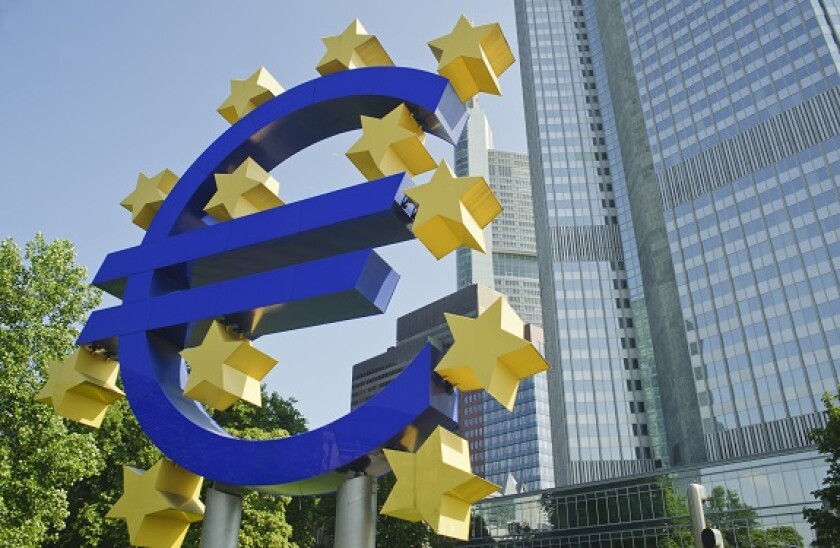A crisis is a time in which authorities are quick to grant themselves additional powers. Getting them to relinquish those powers after the crisis is over can take a lot longer.
The European Central Bank granted itself some quite extraordinary powers through the Pandemic Emergency Purchase Programme (Pepp), and is apparently mulling over whether or not to make these a permanent feature of its regular Asset Purchase Programme (APP).
The Pepp is essentially able to ignore the ECB's capital key, which guides the proportion of each eurozone government’s bonds that it purchases. It is also able to disregard the 33% ownership limit for sovereign bonds. Finally, it is able to purchase Greek government bonds, although Greece’s credit rating is below investment grade.
The regular APP, which has these limits, has already proved contentious enough to spark legal challenge. So far, the ECB has escaped with its powers unscathed, but its self-imposed limits were key to the survival of its QE programmes.
Indeed, a speech by Yves Mersch, an ECB board member, in June 2016 and reproduced on the ECB’s website acknowledges that “the European Court of Justice explicitly highlighted [the issue share and issuer] limits when deciding upon the lawfulness of our actions”.
He went on to say that adherence to the capital key “together with the issuer limits… ensures breathing space within and across markets for efficient price discovery”.
The Pepp is likely to escape legal challenge only by virtue of its brevity versus the more lethargic pace at which the wheels of European justice turn. It is set to expire in June 2021 and the ECB is unlikely to be able to prolong its existence far beyond the development of a vaccine, should one arrive.
But the APP is in place until the ECB achieves “close to but below 2% inflation”, and perhaps for much longer, given recent calls for symmetrical monetary policy. With core inflation collapsing to its all time low of 0.4% year-on-year in August, the APP is set to be a feature for the foreseeable future.
Long enough, in fact, for the ponderous machinations of Europe’s constitutional courts to challenge it.
Abandoning the limits that constrain the APP would give the ECB the capacity to suppress volatility and price fluctuations — even those stemming from political, rather than financial sources — indefinitely.
That is a great deal of power to grant an institution officially charged only with maintaining price and financial stability.
Would the ECB take such a step? Yves Mersch said no this week, but the central bank may be running out of options. The ordinary APP has staved off deflation, but has never got the ECB within spitting distance of its inflation target, and it is running out of rope.
Sooner or later, the ECB will run into its issuer limits and be forced to move them or abandon them. At that point, it will either have to make the change it is already contemplating, or admit defeat. And without the ECB’s mighty wallet to soak up sovereign paper, refinancing risk will resurrect the spectre of sovereign debt sustainability.
Abandoning its limits will cause a scrap that will almost certainly have to be settled in court, if the challenge mounted in Germany against the Public Sector Purchasing Programme, decided in May, was any indicator, but this is the corner into which the ECB has painted itself. Europe’s sovereign debt market is not strong enough to manage without it.

